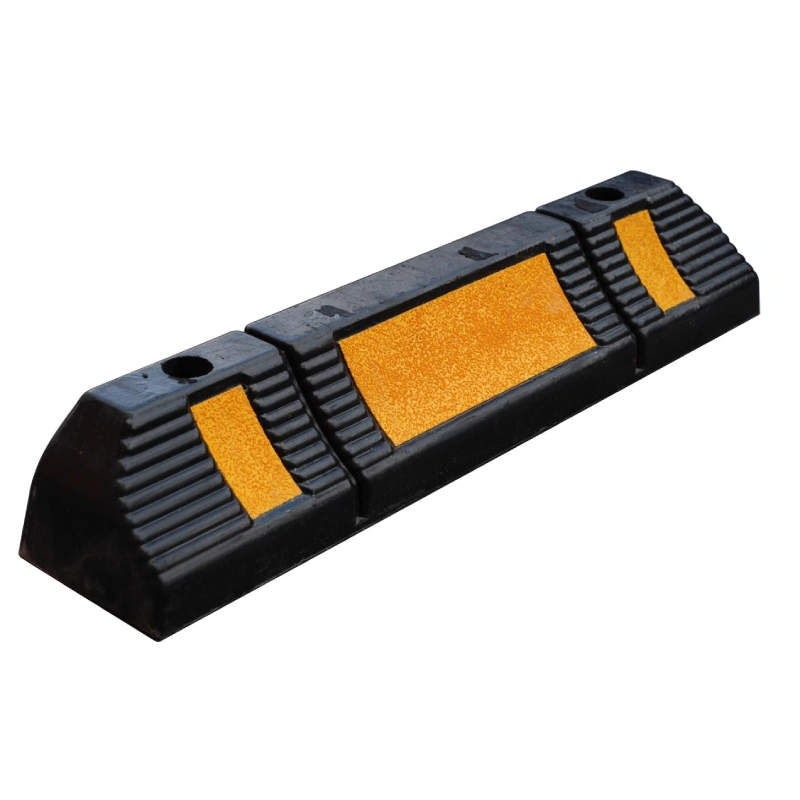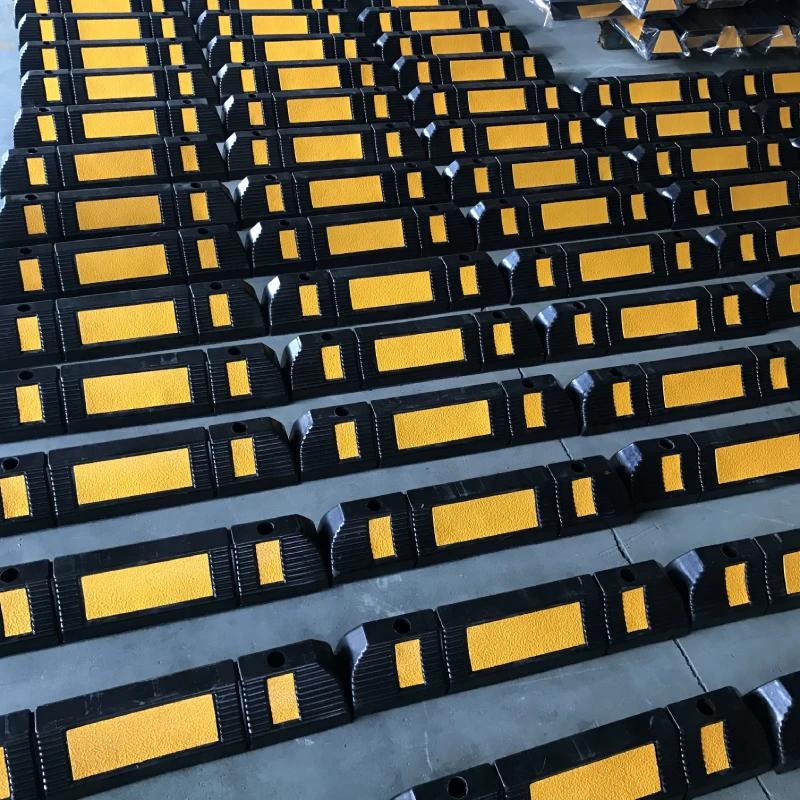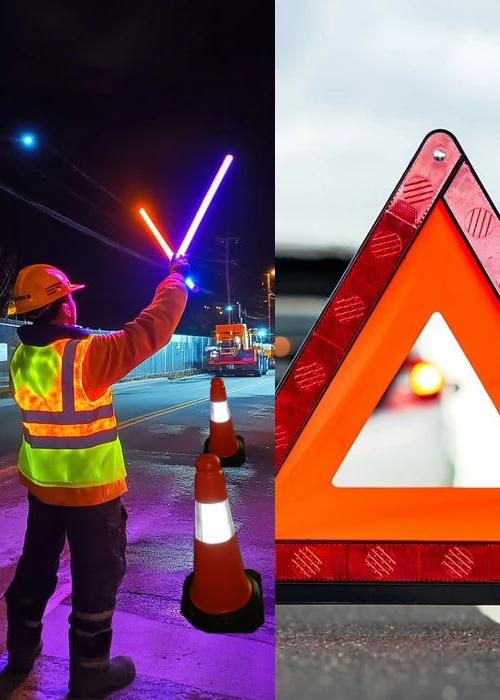Wheel Stoppers Guide: Types, Installation, and Best Options for Safe Parking
When you’re searching for traffic safety products, you may come across tremendous similar terms like wheel stoppers, parking blocks, tyre stops, or car stoppers and so on. Actually, they all refer to the same essential product: a barrier installed at the end of a parking space which prevents vehicles from moving too far forward. Though often overlooked, wheel stoppers for parking lots and garages play a vital role in protecting nearby infrastructure and pedestrians. They are widely used in parking lots, garages, driveways, and commercial or industrial zones.
In this article, you’ll learn the different types of wheel stoppers, their significance, how to install and maintain them, and some frequently asked questions about this safety device.

Types of Wheel Stoppers
Wheel stoppers come in several types depending on the use environment and material.
• Rubber wheel stoppers: A common and popular type. Quiet, tire-friendly, shock-absorbent and weather resistant. Ideal for garages, indoor parking lots, and residential areas.
• Plastic wheel stoppers: A newer and increasingly popular type. Lightweight and resistant to water and chemicals, suitable for temporary parking areas or rented spaces.
• Metal wheel stoppers: A less common type. Usually made of steel or aluminum, designed for heavy-duty applications such as truck docks or warehouse loading areas. Prone to rust outdoors.
• Concrete wheel stoppers: A common type. Durable and heavy, ideal for permanent installations in outdoor commercial lots.
Why Wheel Stoppers Matter in Parking Safety?
Wheel stoppers are more than just physical blocks—they enhance parking safety and organization:
• Prevent Rollaway Accidents: Wheel stoppers protect vehicles from unintentional movement, especially important for electric vehicle charging stations or sloped parking lots.
• Define Parking Boundaries: Wheel stoppers help clearly mark individual parking spaces, avoiding chaos in shared lots like busy garages or commercial spaces.
• Enhance Safety: Rubber parking stoppers help to prevent traffic collisions, protecting drivers, other road users and nearby infrastructure.
How to Install a Wheel Stopper?
Installing rubber wheel stoppers is a straightforward process suitable for DIY garage owners or parking lot managers. Whether for temporary or permanent parking, this guide ensures your wheel stoppers stay securely in place.
• Choose the Right Location: Select the ideal position for the wheel stopper, typically at the front end of a parking space where vehicles are most likely to stop. Ensure it aligns with the parking line and doesn’t obstruct any pathways.
• Clean the Surface: Thoroughly clean the installation area by removing any dust, dirt, water, or debris. A clean surface is essential for ensuring strong adhesion and preventing the stopper from shifting after installation.
• Drill and Insert Anchor Bolts: Use a drill to create holes in the surface according to the size of the anchor bolts. Make sure the holes align with the pre-drilled holes on the stopper. Insert the anchor bolts into the drilled holes and ensure they are firmly placed.
• Secure the Stopper: Tighten the bolts securely to attach the wheel stopper. Use a wrench or appropriate tool to ensure the bolts are tightly fastened, making the stopper immovable and providing effective stopping power.
How to Maintain Wheel Stoppers?
Proper maintenance ensures long-term performance:
• Regularly Inspect for Cracks, Loosened Bolts, or Worn-Down Surfaces: All these negative factors could compromise car stoppers’ effectiveness. Periodical check is necessary to ensure they’re in good conditions.
• Clean the Surface to Avoid Buildup of Mud, Snow, or Debris: These accumulations can reduce friction and make the stoppers less effective. Use a brush or a hose to clear any buildup. Keeping the stopper clean also prevents potential damage from chemicals, like salt used on roads in winter, which can corrode the material. • Replace Damaged Stoppers Promptly: If you notice any significant damage, such as deep cracks or missing parts, replace the wheel stopper immediately to maintain safety. A damaged stopper can lead to accidents or allow vehicles to roll past it.
FAQs
1. When Should I Use a Wheel Stopper Instead of a Wheel Chock?
- Wheel Stopper: Ideal for light vehicles (sedans, SUVs), temporary parking, and slopes of ≤10°.
- Wheel Chock: Best for heavy vehicles (trucks, construction machinery), loading and unloading, and steep slopes.
2. Can I Paint or Customize My Wheel Stoppers?
- Only use paint specifically designed for rubber to avoid affecting the friction coefficient.
- Do not cover reflective strips, especially if the stopper is a certified model.
3. What are the best wheel stoppers for home garages?
- Rubber wheel stoppers are quiet, compact, and easy to install, making them ideal for residential garages
4. Where Can I Buy Certified Wheel Stoppers?
- Looking for high-quality, certified wheel stoppers for your garage, driveway, or commercial lot? Visit BestWay’s product page to find a wide range of durable, easy-to-install parking stoppers that meet all safety standards. Our parking blocks are made of 100% recycled rubber or plastic, highly visible and extremely durable. The rubber parking stoppers are resistant to UV rays, moisture, oil and extreme temperatures. Our products are drilled before shipment, which can be easily installed in garages or parking lots for temporary or permanent installation.


